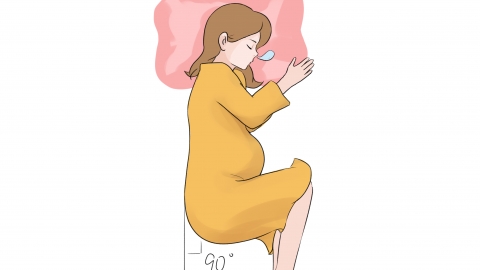What are the causes of edema in the middle and late stages of pregnancy?
Generally, the causes of edema in the middle and late stages of pregnancy may include water and sodium retention, impaired venous return in the lower limbs, deep vein thrombosis, glomerulonephritis, and gestational hypertension. Symptomatic management such as general treatment and medication may be needed. Once physical discomfort occurs, early medical evaluation and treatment are recommended. Detailed analysis is as follows:

1. Water and Sodium Retention
In the middle and late stages of pregnancy, hormonal changes in a woman's body can lead to retention of water and salt in tissues, resulting in edema. This is a normal physiological phenomenon; pregnant women usually experience mild lower limb edema, which can be relieved by rest or elevating the legs.
2. Impaired Venous Return in the Lower Limbs
As pregnancy progresses, the enlarging uterus exerts pressure on the pelvic blood vessels, impeding venous return from the lower limbs and increasing venous pressure, which can lead to edema. It may be accompanied by mild leg pain, distension, or numbness. Pregnant women should avoid prolonged standing or sitting and appropriately elevate their legs to promote venous return.
3. Deep Vein Thrombosis
Due to increased blood viscosity and slower blood flow during pregnancy, thrombosis may easily form in the deep veins of the lower limbs, obstructing blood return and causing edema. Symptoms typically include leg pain, swelling, and elevated skin temperature. It is recommended to use medications such as heparin sodium tablets, warfarin sodium tablets, or urokinase injection under a physician's guidance.
4. Glomerulonephritis
Pre-existing kidney disease may worsen during pregnancy. Glomerulonephritis damages the glomerular filtration membrane, leading to protein loss in urine, decreased plasma protein concentration, reduced plasma osmotic pressure, and consequently increased interstitial fluid causing edema. Symptoms may include frequent urination, urgency, and pain. It is recommended to use medications such as furosemide injection, captopril tablets, and cyclosporine soft capsules under a physician's guidance.
5. Gestational Hypertension
If a pregnant woman has a family history of hypertension or abnormal placental implantation, gestational hypertension may develop. Gestational hypertension causes vascular spasm, increased vascular permeability, and plasma protein leakage into interstitial spaces, resulting in edema. Symptoms may include proteinuria, headache, and blurred vision. Antihypertensive medications such as nifedipine sustained-release tablets, labetalol hydrochloride tablets, and magnesium sulfate injection should be used under a physician's guidance.
It is recommended to ensure adequate sleep and rest in the left lateral position as much as possible, which can reduce the pressure of the enlarging uterus on the inferior vena cava, promote blood return, and alleviate edema.




